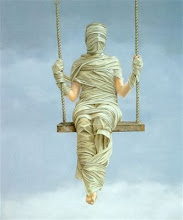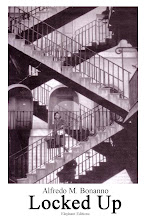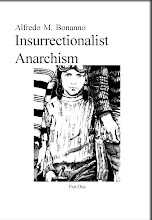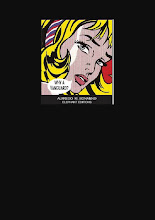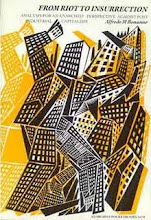Original title:
Carcere e lotte dei detenuti
"I libri di Anarchismo" N. Venti
June 2000
Introduction
The pieces that follow document a problem that has always interested me: that concerning prisoners’struggles.
I well know that there are many divergent ideas among revolutionaries on this subject and I also know that anarchists have often ended up accepting untenable positions as far as I am concerned. On finding oneself in prison it is easy to adopt the net and clear position of not being available for any struggle at all unless it has the radical characteristic of total destruction. I also agree that the best possible solution—and basically the only practicable one—concerning prison is its complete destruction. But I do not agree to consider any form of struggle that might come from prison, by the men and women imprisoned therein, simply as "something that happens by concession of the direction".
Let us start to demystify this aspect.
Looking at things dispassionately, there can be no doubt that any struggle whatsoever, including those that do not only aim to reach an objective but come about in an "intermediate" way then develop to their radical consequences, is done "with permission of the counterpart". If the latter were to stifle every manifestation of dissent from the moment it arose no struggles would come to light at all, the balance of power, the capacity to intervene, being decidedly on the side of the repression.
But why does this not happen? Because in the social field the balance of power is not just a question of simply counting the bocche di fuoco. It goes beyond that, facing the infinite disparities that weave the canvass of social contrasts and develops them to the possible consequences of total confrontation, sometimes only desired, even dreamed, but not for this to be excluded a priori. Usually, by "political" we revolutionaries mean—screwing up our faces to ward off the evil—this weighing up of the pros and cons that the repression goes through before deciding to intervene. The same thing happens in prison.
The administration is not always capable of facing a movement of dissent, it cannot always have immediate recourse without delay, as it would like to in most cases, to the interventions of public safety that characterise it and for which it is doted with men, means and mentality. Not always, because the problem is more articulate, and this articulation becomes a field in which dissent itself can grow, strengthen, form nuclei of the possible awakening of consciousness, aggregate in minimal structures, that are multiple and informal, take form at a territorial level, establish contacts with other prisons, widen the protest that is pauperised to a maximum by lack of freedom, but never completely extinguished, making its painful and often extenuated voice heard.
When I was arrested in October 1972 I established, logically, many amicable contacts in the prison of Catania. These were hard times. The prison structures and methods of custody were still archaic and very repressive. Deep body inspections were frequent, straight jackets, isolation for the tiniest infraction of the rules (I was punished with 15 days’ isolation for refusing to work). The intervention of the punitive squad for even the most trivial questions, also between prisoners, daily beatings and not even minimal levels of survival in the cells (you couldn’t cook anything, didn’t have a camping gas burner, or a chair, a table, or a television set, etc.). We organised a protest against abuses concerning the consignment, by the guards, of the few items of extras one was allowed to buy. Usually something went missing: a packet of cigarettes, a bottle of orange juice, a roll of toilet paper, a solid gas tablet. For three days we abstained from ordering anything. A masochistic action, but an important one because it indicated in some aspects a new road, it tried to point out where the problem lay, even though due to the prevailing conditions in the prison it could not be said directly. Even I, who was in prison for subversive activity (a few articles published in the paper ‘Sinistra Libertaria’), could not say things clearly because most of the prisoners would not have accepted the smallest step forward. I also had to move with extreme prudence. The small result of blocking these daily losses was obtained.
When, a few months after my release, the prisoners’ protest broke out much more widely and ferociously and nearly all of them went up on to the roof and started dismantling the roofing, throwing the material into the street below, the carabinieri came to take me from my home saying that some prisoners had asked to speak to me before putting an end to the revolt. They took me into the prison where I was searched and taken to the rotunda, then left alone. A few minutes later the huge door of the right wing (the only one still operable at that moment) was opened by the prisoners and I went in to talk with them. Their demands were to have decent food (following a number of cases of food poisoning), to be able to buy a wider range of things, not to be fleeced by the company that managed the sale of products inside the prison and, lastly, not to suffer personal repercussions (beatings, transfers).
My reply was that they could have spoken directly with the procurator of the republic who was in the prison at that moment, or with the director, who was also there. But none of them trusted that mob. I answered that my presence certainly didn’t increase this trust, that they were still cops and so they couldn’t be trusted. They answered that anyway the most had been done (destruction of the prison) and for the rest it was enough for me to engage myself to follow up the eventual very serious measures, in particular transfers to unknown destinations.
The conclusion of that first experience of mine was that I spoke with the procurator of the republic and the prison director, they guaranteed what as perfect cops they had to guarantee and later, with death in my heart, I saw the carabinieri go into the prison. It goes without saying that there were terrible beatings and transfers. I tried, along with some other comrades, to do something about the first and the second. The affair was denounced at local level, in posters and leaflets, meetings were held, one had recourse to the help of dozens of lawyers to limit the damage of the worst transfers, and I learned my lesson, even within the limits of the delegate that the prisoners had naively given me, and that I certainly couldn’t have refused without betraying their trust, that they had done the best part of the job.
When then, a long time later, in the prison of Bergamo, where I was held for almost two years, I found myself in the same situation, i.e. chosen as prisoners’ representative during the strike that was being organised; again I did not try to get out of it. Three months of articulated struggle came out of what began with six days’ hunger strike, and ended at the end of 1990 with the concession of the amnesty: one of the demands of that struggle.
Many will see a contradiction here in that I wrote the book 'And we will always be ready to storm the heavens again', where I spoke radically against amnesty. But this contradiction is only apparent, and can easily be clarified. The situation in which I find myself struggling along with my comrades to obtain an amnesty related to my revolutionary activity, proposing the ceasing of the class clash in terms such as "the war is over" is one thing; to participate in a struggle for amnesty for everybody along with the other prisoners, is another. In the second case I am participating in an "intermediate struggle" and am asking for more space to develop, as far as possible a different struggle that might emerge and might not, but for me that is the real objective: the struggle for the generalisation of the clash, for the armed insurrection against the State and all its servants. As one can see the situation overturns: in the first case, in asking for an amnesty, I am declaring a priori the dismantling of any revolutionary perspective, in the second, I am apparently asking for the same thing, but I am asking for it in the revolutionary perspective of the generalised clash.
I know that these struggles can be recuperated, but there is a difference: the first struggle, i.e.admitting that the whole revolutionary perspective is over, is recuperated before it starts; the second struggle, even if the demand is "intermediate", always presents the possibility of a revolutionary outlet. And this is also possible in prison.
This difference remains a valid instrument of analysis because it reflects on the concept of recuperation. Many consider themselves exempt from the study of ever wider and ever less recuperable means of struggle, stating before it starts that any means of struggle, and therefore any struggle, is recuperable. It comes from this, starting from this assumption, that the only non-recuperable means is the extreme one, generally the frontal armed clash that deprives the State of political feigning and pushes it to have recourse to extreme repression, thereby unveiling its true nature. That is undoubtedly so, but it is simplificatory. I remember the warning of Malatesta who was suspicious of those who do not come out into field other than to put the world upside down, and that are always recitent when it is a question of doing something, of starting from any point of the wide repressive range. He preferred, if I am not mistaken, to start by acting, even in a small and limited way, because by waiting for the great occasion to destroy everything, one ends up doing nothing and therefore accepting everything.
The intermediate struggle, taken in the very general sense of struggle that does not give itself revolutionary objectives immediately, therefore presents itself in any sector of social life that it comes to develop itself, is a struggle for claiming something. Keeping the distinction at this level, between claiming and destruction, between demands for improvement and revolution, there is an abyss that no good will, no spirit of service, no machiavellian intrusion of politics into morals will ever be able to cross. It is not therefore from the modification of the objectives that the response must come, whatever it might be. Although the objectives that the struggle seeks and individuates to satisfy people’s needs can vary, there remains the radical fundamental difference between what my real aims are, as revolutionary and anarchist, and what the most radical and extreme objective of the demand can be. But, doing in this way, I withdraw from any contact with the material conditions of the class clash, I cut off the very possibility of a conflictual cohabitation with society as a whole, rendering significant with outlets, and therefore with contradictions, revolutionary activity itself. Not being a holder of the truth, or even conceding that someone really can have this near at hand, I have nothing left to do but learn from the difficulties of life themselves, even from the tiny movements that seemed insignificant, from passive resistance, from attitudes of non approval, from the most banal refusals, sometimes not even visible, from individual rebellion, but all the same full of collective significance, that are born and die in the collectivity, and from all the acts that demonstrate vitality and creativity, but which left to themselves abort in habit and indifference.
What can characterise me therefore is not the significance of the objective, the breadth of the analyses that show the importance of reaching it, the relational tissue that puts in evidence why that objective, first circumscribed, plainly shows connections that no one else saw. It is nothing of all that. What counts, what characterises my intervention as a revolutionary, is the method.
The intermediate struggle has a sense if it is proposed on the basis of a revolutionary and anarchist method, if it differentiates itself on the basis of the means chosen, and therefore also the way in which to use these means, does not recuperate its own sense only in function with the objective chosen. This, although it remains essential - and how could it be otherwise - for the people, is not so for me who is what I am.
This calling myself different, this identifying myself as carrier of different ideas - and therefore of a different methodology - is not aristocracy of action, and thought, but is the real identification of what I want, with all its limits and possibilities. I want, in the intermediate struggle, therefore fully and satisfyingly revendicative, for a method to emerge, for a positive result to be reached through my method, my method, not that heap of thrown together procedures that are often employed in a hurry, with exclusively practical intentions, and results that are sometimes simply ridiculous.
And I also want this in prison. Prison, although with its special repressive conditions, is not another world, it is only a ‘different’ place of society, and therefore of power that society conditions and supports, a physical and mental place in which power expresses itself in simplifying some of its rules, in particular the repressive ones. A place of total institution that, for this very reason, makes some conditions more immediately readable. Inside it one doesn't get cheated easily in the midst of ‘freedoms’ of which the so-called free society is full to the brim. In prison everything is more difficult, even going for a walk, and, precisely for this reason, everything is more simple
To dream, as some do, of levels of struggle in prison characteristic of a few decades ago, placing at the maximum of these levels, for example, the red week of Asinara, or the clashes in Trani or Voghera, means not realising that ideal levels of the clash do not exist, but only struggles that must, each in the ambit of their own characteristics, develop, with our personal contribution, going the whole hog, i.e., exercising all their potential to develop themselves, if it is the case, towards an always possible generalisation of the clash.
In the same way that there isn’t a heart of the State, one fundamental contradiction of capitalism, neither is there one struggle to take precedence over the others, but a method that turns out to be better than the others, once it has been experimented in the struggle, and this is certainly the method of permanent conflictuality, selfmanagement and attack, a method that keeps far away all the forces that have no interest in the struggling developing to its extreme, natural consequences.
The prison condition makes no exception. Even in prison intermediate struggles are possible, and the experiences of discussion and analytical exploration presented here will try to demonstrate it.
Alfredo M. Bonanno
Trieste, 24 January 2000
skip to main |
skip to sidebar

Some writings of Alfredo Maria Bonanno in English, or almost

Alfredo Bonanno was arrested on October 1st 2009 in Greece, accused of concourse in robbery. With him, anarchist comrade Christos Stratigopoulos.
Here are a few translations and part translations of a small portion of Alfredo's writing. This is a work in progress, many of the translations are as yet incomplete. Open links to find more of Alfredo's work.
Alfredo Bonnano Released
Nov. 22 Alfredo Bonnano was sentenced to 4 years imprisonment (which practically means that with the time served so far and the fact that he is over 70years old HE IS RELEASED
Christos Stratigopoulos (who took responsibility for the action)
was sentenced to 8 years and 9 months with the Greek law will probably be released at the end 2011
BY ANY MEANS NECESSARY
LINKS
click on any of these labels to read text
- "Community" sickness
- 1981 - Editorial
- A Critique of Syndicalist Methods
- A few notes on Sacco and Vanzetti
- A few notes on the revolutionary movement in Italy
- A little man in Singapore
- A million jobs
- A question of class
- Affinity
- After Marx autonomy
- Albania Laboratory of Subversion (Introduction)
- Anarchism and the national liberation struggle
- Anarchists and action
- AND WE WILL ALWAYS BE READY TO STORM THE HEAVENS AGAIN (Against amnesty)
- ANTI-INSTITUTIONAL MOVEMENT
- Are we modern?
- Armed Joy
- ARMED STRUGGLE. SOME REFLECTIONS.
- Autonomous base nuclei
- beyond syndicalism
- Beyond workerism
- But what is the imaginary?
- Class War
- Comiso - Organizational document of the self-managed leagues
- Considerations on illegality
- Dissonances (Introduction)
- Elephant Editions 1986
- Excluded and included
- Farewell to claiming
- Feral Revolution (Introduction)
- FICTITIOUS MOVEMENT AND REAL MOVEMENT
- For an Antiauthoritarian Insurrectionist International - Proposal for a debate
- From riot to insurrection
- From the centre to the periphery
- Good technology
- Guerilla Extraordinary
- Habits and idols
- Hegel
- I know who killed chief superintendent Luigi Calabresi
- Illegality
- Illness and capital
- Informal organisation
- Insurrection
- Internationalism
- Introduction to Sabate
- Introduction to Anarchism and Violence
- Introduction to Bratach Dubh English edition of Malatesta's Fra Contadini
- Introduction to Insurrectionalist Anarchism
- Introduction to Strange Victories
- Introduction to The Conquest of Bread
- Involuntary aspects of voluntary work
- Let's destroy work
- LET'S DESTROY WORK. New introduction
- Let's keep our feet on the ground please
- Lightening Conductors and Stand-ins - more shots of non-news
- Lightning Conductors and Stand-ins
- Lightning Conductors and Stand-ins (cont.)
- Locked up
- Looking forward to self-management
- Loss of language
- More on internationalism
- National Liberation Struggle
- nineteen years on
- No more crises
- Non-news about drugs
- Non-news about racism
- Ode to the Uniform
- On Feminism
- One's life on the line
- Order and chaos
- Otto Ruhle (Introductory Note)
- OUR ROLE IN THE PRESENT CONFLICT
- Palestine mon amour
- Pantagruel anarchist review
- Pinelli
- Prison and Prisoners’ Struggles - Introduction
- Propulsive Utopia
- Quality and the factory
- Restructuring Capital and the new democracy
- Revolution - Violence - Antiauthoritarianism
- REVOLUTIONARY VIOLENCE
- Science and the social revolution
- Self-management
- Severino Di Giovanni in Argentina 1923-1931 by Osvaldo Bayer
- Social banditry
- SOME NOTES -
- Space and Capital
- Stirner
- Stop the City? From information to attack
- Strategy and Methods
- Streamlined production
- The "end" of the crisis
- The aesthetics of anarchism
- The anarchist tension
- The area of autonomy and the anarchist movement in Italy
- The armed wing of science
- The Cruise missile base at Comiso can be prevented
- The ethical bank
- The insurrectional project
- THE LANGUAGE OF TECNICS -
- The logic of insurrection
- The moral split
- THE NECESSARY DESTRUCTION -
- The priority of practice
- The refusal of arms
- The revolutionary project
- The revolutionary struggle
- The significance of an insignificant event
- The struggle for self-managed social space
- The tyranny of weakness
- The whole and the part
- The young in a post industrial society
- Theory and action
- Towards anarchist antimilitarism
- TOWARDS THE GENERALISATION OF ARMED STRUGGLE
- TRANSFORMATION IN THE WORLD OF WORK AND SCHOOL -
- TRUTH -
- Unemployment in Italy - How come everything doesn't explode?
- Untitled
- Violence and non-violence
- What are anarchists
- What can we do with anti-fascism?
- Why a vanguard?
- Why Insurrection
- World domination in a few words

